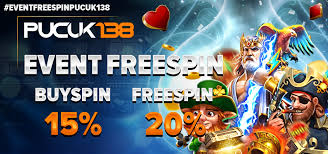This is not a mix-and-match list. You have to have all of those things to get the big a course in miracles unless you are an international celebrity or a best-selling author.
Page’s aim was to deflate unrealistic expectations. Her book aims to get you into print, not necessarily to get you rich. Most authors do not get rich from their books. Most publishers don’t get rich either. Book publishing is an industry in which there is very little profit. If authors get rich, it’s usually because having a book lets them sell expensive services and book high-paying speaking gigs.
You can get a six-figure advance, but it will cost you.
And I don’t mean the $197 price tag on Susan Harrow’s new e-book, Get a Six-Figure Book Advance. A $200 investment is nothing if it gets you a $200,000 return. Using the proposal template/software included with her $197 e-book, you’ll be able to produce the kind of proposal that will have publishers in hot pursuit–but getting the advance requires a whole lot more than just buying the book or even having all the right elements in your proposal.
If you want a six-figure book advance, you’re going to have to work for it.
Susan Harrow, jokingly known as a “de-motivational coach,” doesn’t try to pretend otherwise. In her August 4th teleclass, co-hosted by ghostwriter Mahesh Grossman of the Authors Team, she made it clear just how much work goes into getting a six-figure advance, and how long and hard you have to keep working after you get the money.
How advances work
In order to persuade publishers to pay you $100,000 or more before your book is published, you have to convince them that your book will sell at least 100,000 copies. (Your royalty will be about $1/book for a trade paperback, possibly as much as $3/book for a hardcover, so you do the math.) And since books don’t sell themselves, what you’re really saying to the publisher is that you can sell those 100,000 copies.
Yes, a publisher that invests that much money in you will also invest more in the production and marketing of your book than in someone who gets a smaller advance, but when you get right down to it, no one really buys a book because of its publisher. And your book won’t sell just because it’s a good book. People rarely buy non-fiction books for the quality of the writing. They buy for the quality of the information–and in the mind of the public, that depends on the expertise and reputation of the author. It all comes back to you.
How do you get readers to think of you as an expert?
First, they have to know you exist. If you’re not already a celebrity, you’re going to have to become one, or at least put up a convincing show. If you don’t have legions of fans, you should at least have thousands of subscribers to your e-zine or blog, or a syndicated column in a newspaper. If you haven’t been on Oprah or The Today Show yet, radio interviews and local TV news programs are a good start.
Getting into the public eye
To get visible enough fast enough, you probably need a publicist, which means shelling out several thousand dollars. In order for media attention to do you any good, you have to look good and sound good every time you appear. That means getting professional media coaching before you start lining up interviews to make up for not being a celebrity. You need to arm yourself with a repertoire of sound bites for all occasions and rehearse until you can spout them in your sleep.

